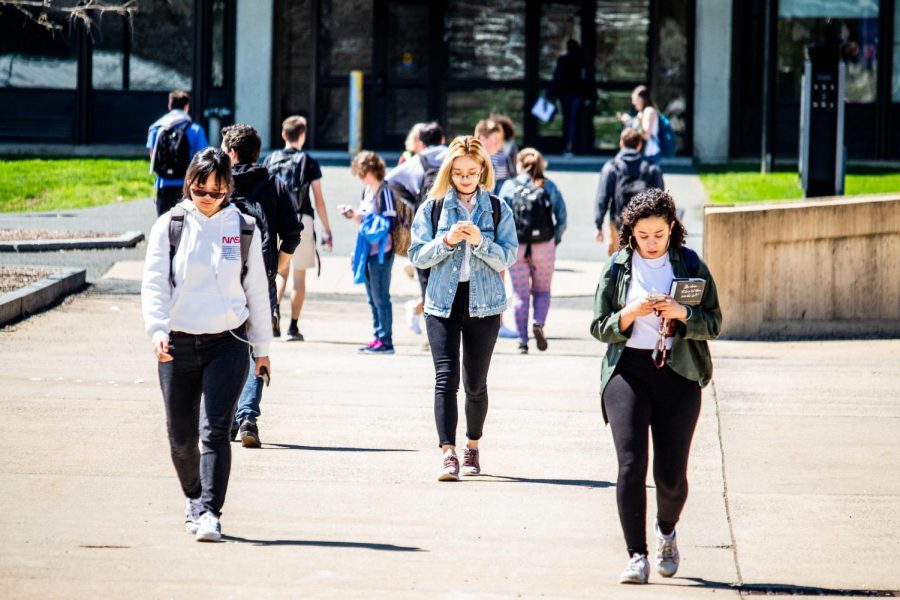Anyone who thinks a $1,200 check is enough to get every American adult through the COVID-19 crisis is not looking at the bigger picture. Still, looking at who is acknowledged by the CARES Act is our best indicator of which communities this future stimulus packages might help.
That’s why I was disappointed to learn that most college students — dependents over 17 years old — are apparently being snubbed from the $2 trillion stimulus package.
You should find out if you are individually eligible for stimulus money, but the general rule is that you must be an unclaimed, independent tax filer. You get less money if you make more than $75,000 and more than that if you are a head of household, but for most people aged 17-25, these are not common attributes.
The thinking behind this may be that this age group is more likely to have a safety net because their expenses are probably paid by their parents. There are two problems with this assessment.
First, the neglect is hard to justify when parents and guardians get an additional $500 for “children” (defined as 16 or younger). This makes sense — children need time and extra care, demanding more financial resources from their caretakers. But even if a college-going dependent is helping out around the house, they, too, are consuming valuable resources.
So many families across the country are unexpectedly housing, feeding, and making adjustments to their lives because their college-going member was forced to leave campus — notably acquiring better Wi-Fi, if they can afford it, as students increasingly finish their semester online.
Worse, most of these students and families still have to pay full tuition, and it’s not a guarantee that their school will reimburse the student for lost room, board, or food payments as the University of Massachusetts is.
Secondly, it is a mistake to write off 18- to 25-year-old dependents as having a sure safety net. Many college-aged juniors and seniors live off-campus, buy their own groceries or once worked on campus or at a local business before their physical spaces shuttered. Even with support from their parents or guardians, they are facing the same issues that working families do: housing insecurity, abrupt unemployment and unanticipated expenses.
Young people and their families might even be suffering at greater levels. An ABC poll showed that 66 percent of young people (ages 18-29) lost their jobs or have someone in their immediate family who did. This statistic is higher for those in their thirties (59 percent) and ages 40-64 (47 percent).
There’s more to consider. Some students are unable to return home with their dependent because they live in another state that has more intense travel restrictions. Others may not be able to afford taking a flight home—and if they could, it might be a financial burden on their families close to the $1,200 mark alone.
Living on your own might further be a smart choice for personal reasons. Students might feel their housing arrangement is a safer or more suitable place to finish their degree. Some may not want to risk bringing COVID-19 to their household to a loved one who is elderly or high-risk. Whatever the reason, living away means more rent, utilities and necessities to pay.
With these things in mind, it seems logical to create one of two allowances: either parents and guardians should receive support for taking their young adults back home, or the young adult dependents “stuck” elsewhere should qualify for the stimulus benefit. Every family is different, so having that choice — or creating some rational basis for determining which option each familiy qualifies for — is prudent.
It is true that $30 billion of stimulus was pumped into higher education, which may be the reason many colleges are starting to unravel reimbursement and loan forgiveness plans. It also means more flexibility surrounding loan payments, among other things. This is good for damage mitigation, but not overall protection. The purpose of the $1,200 stimulus is immediate relief, and that is precisely what college students are denied.
There’s another reason we young people should get a piece of the pie. Many of us were years — months, for some — from becoming tax independent with the assumption of a good job market and the possibility of moving out of the house and becoming an independent taxpayer. Now, that assurance is crumbling before our eyes. As a senior, even if I am lucky enough to land a job, the opportunities available to me are severely limited and harder to attain.
Keeping our heads up is half the job. The economic downturn we are facing is demoralizing. For students who are first-generation, people of color or come from low-income families, proceeding unceremoniously after years of work is an even heavier blow. With not a graduation ceremony to spare before we enter a recession, we are pioneers into a grim and uncertain world.
The least we could get is $1,200 to help us pay the bills.
James Mazarakis is Head Op/Ed Editor and can be reached at [email protected] and followed on Twitter at @dailyjmaz.




















Kelly • Apr 21, 2020 at 9:00 pm
This article fails to paint the whole picture. From what I’ve read, the CARES act requires that Higher learning institutions will grant at least 50% of their emergency funding directly to students. Loan payments have been suspended. Loan rates are temporarily reduced to zero. Additionally, students who have been working are eligible for an additional $600 per week in unemployment. Imagine holding a part time job where you make a hundred some a week and now you get about $700 for doing nothing. Maybe students don’t get the one-time $1200, but they will fare better than most in the end when the whole picture is taken into account.